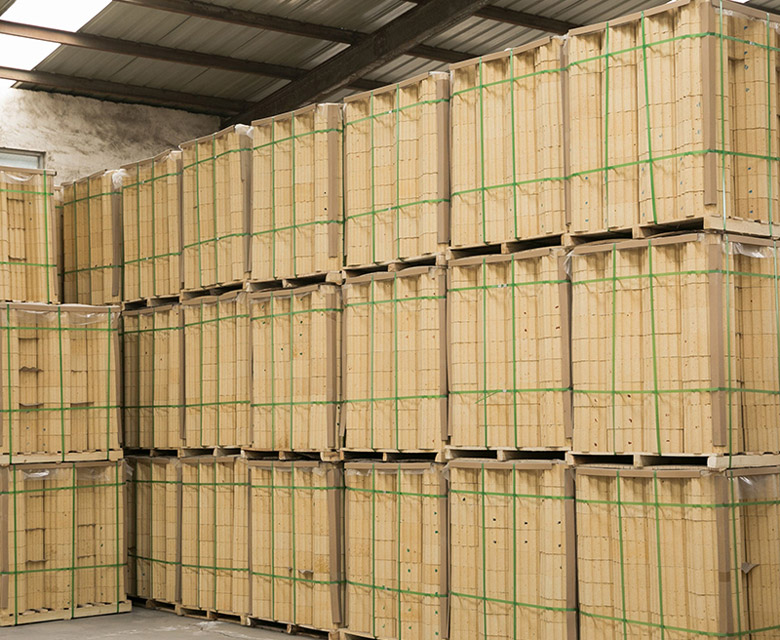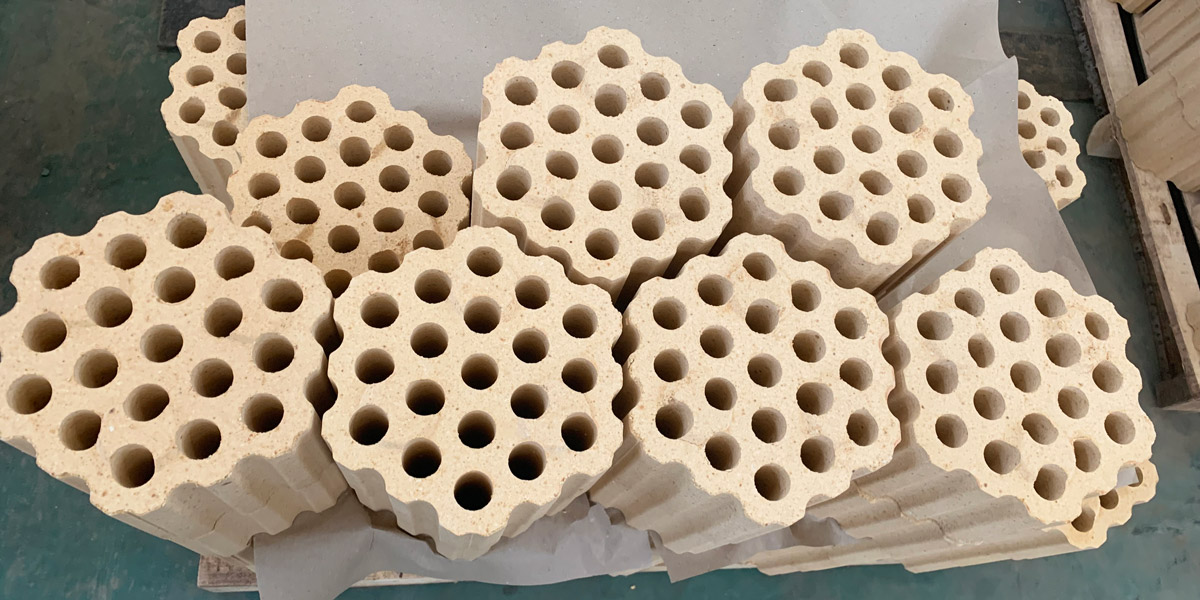12
0
0
Checker Bricks: A Versatile Refractory Material for Heat Transfer and Storage
Checker bricks, also known as regenerative bricks, are a type of refractory material commonly used in heat transfer and storage applications. They are typically made from high-quality fireclay or silica bricks and are arranged in a checkerboard pattern within the regenerative chambers of hot blast stoves, glass kilns, and other industrial furnaces.

Properties of Checker Bricks
Checker bricks possess unique properties that make them suitable for their demanding applications:
[ol]
High Heat Capacity: Chequer brick has a high heat capacity, meaning they can absorb and store large amounts of heat energy. This property is crucial for their role in heat transfer and storage.
Excellent Thermal Conductivity: Checker bricks exhibit high thermal conductivity, allowing them to efficiently transfer heat from one medium to another. This property is essential for their heat exchange function.
High Refractoriness: Checker bricks can withstand extreme temperatures without melting or deforming. Their refractoriness typically ranges from 1300°C (2372°F) to 1750°C (3182°F), making them suitable for high-temperature applications.
Chemical Resistance: Checker bricks are resistant to chemical attack from various substances, including acids, alkalis, and salts. This resistance allows them to withstand harsh chemical environments.
Structural Integrity: Checker bricks maintain their structural integrity under high temperatures and mechanical stresses. This stability is crucial for their long-lasting performance.
[/ol]
Applications of Checker Bricks
Checker bricks are primarily used in heat transfer and storage applications, including:
[ol]
Hot Blast Stoves: Checker bricks play a central role in hot blast stoves, which preheat air for blast furnaces in the iron and steel industry. They absorb heat from the combustion gases during the burning period and release it to the incoming air during the blast period, improving furnace efficiency.
Glass Kilns: Checker bricks are employed in glass kilns to store and release heat during the glass melting and annealing processes. They contribute to energy efficiency and temperature control in glass manufacturing.
Ceramic Tunnel Kilns: Checker bricks are used in ceramic tunnel kilns to achieve uniform heat distribution and controlled firing temperatures for ceramic products. They enhance product quality and reduce energy consumption.
Coke Ovens: Checker bricks are utilized in coke ovens to recover waste heat from the coking process. They contribute to energy conservation and environmental protection.
Other Industrial Furnaces: Checker bricks find applications in various other industrial furnaces, such as metallurgical furnaces, incinerators, and chemical reactors. They improve heat transfer, temperature control, and energy efficiency.
[/ol]
Advantages of Using Checker Bricks
The use of checker bricks offers several advantages in their respective applications:
[ol]
Improved Heat Transfer Efficiency: Checker bricks enhance heat transfer efficiency by effectively transferring heat from one medium to another, reducing energy consumption and improving process efficiency.
Energy Savings: Checker bricks contribute to significant energy savings by storing and releasing heat during operation, minimizing fuel consumption and reducing greenhouse gas emissions.
Temperature Control: Checker bricks facilitate precise temperature control in industrial processes, ensuring product quality and consistency.
Durable and Long-lasting: Checker bricks are exceptionally durable and can withstand harsh operating conditions for extended periods, minimizing maintenance costs and downtime.
Environmentally Friendly: Checker bricks promote environmentally friendly practices by reducing energy consumption and minimizing waste heat emissions.
[/ol]

Disadvantages of Using Checker Bricks
Despite their advantages, checker bricks also have some drawbacks:
[ol]
Complex Installation: The installation of checker bricks requires specialized expertise and careful attention to detail to ensure proper alignment and heat transfer efficiency.
Susceptibility to Erosion: Checker bricks can be susceptible to erosion from high-velocity gas flows and abrasion, which may necessitate periodic replacement.
Potential for Thermal Shock: Checker bricks can experience thermal shock when subjected to rapid temperature changes, potentially leading to cracking or spalling.
Limited Availability: Checker bricks may not be readily available in all regions, requiring lead time for procurement.
[/ol]
Conclusion
Checker bricks are a valuable refractory material with unique properties that make them essential for heat transfer and storage applications in various industries. Their ability to improve heat transfer efficiency, reduce energy consumption, and enhance temperature control makes them a preferred choice in hot blast stoves, glass kilns, ceramic tunnel kilns, coke ovens, and other industrial furnaces. However, it is crucial to consider the complex installation, susceptibility to erosion, potential for thermal shock, and limited availability when making informed decisions about their use.

Properties of Checker Bricks
Checker bricks possess unique properties that make them suitable for their demanding applications:
[ol]
[/ol]
Applications of Checker Bricks
Checker bricks are primarily used in heat transfer and storage applications, including:
[ol]
[/ol]
Advantages of Using Checker Bricks
The use of checker bricks offers several advantages in their respective applications:
[ol]
[/ol]

Disadvantages of Using Checker Bricks
Despite their advantages, checker bricks also have some drawbacks:
[ol]
[/ol]
Conclusion
Checker bricks are a valuable refractory material with unique properties that make them essential for heat transfer and storage applications in various industries. Their ability to improve heat transfer efficiency, reduce energy consumption, and enhance temperature control makes them a preferred choice in hot blast stoves, glass kilns, ceramic tunnel kilns, coke ovens, and other industrial furnaces. However, it is crucial to consider the complex installation, susceptibility to erosion, potential for thermal shock, and limited availability when making informed decisions about their use.